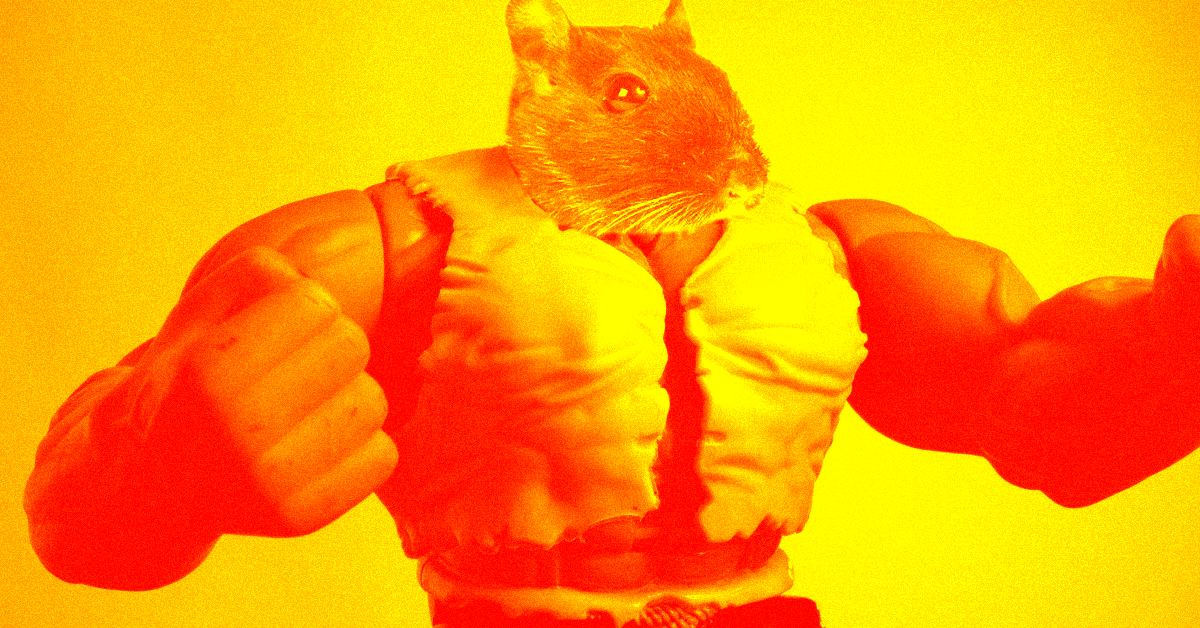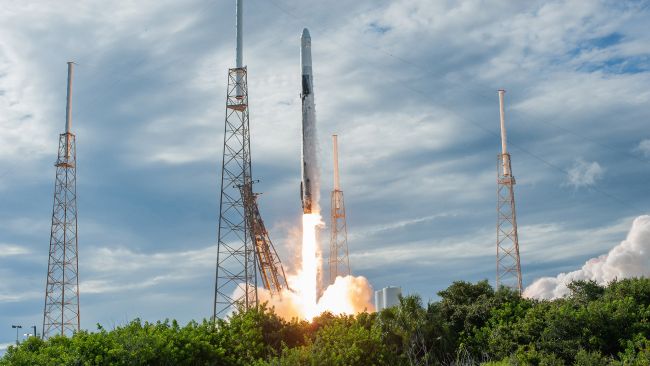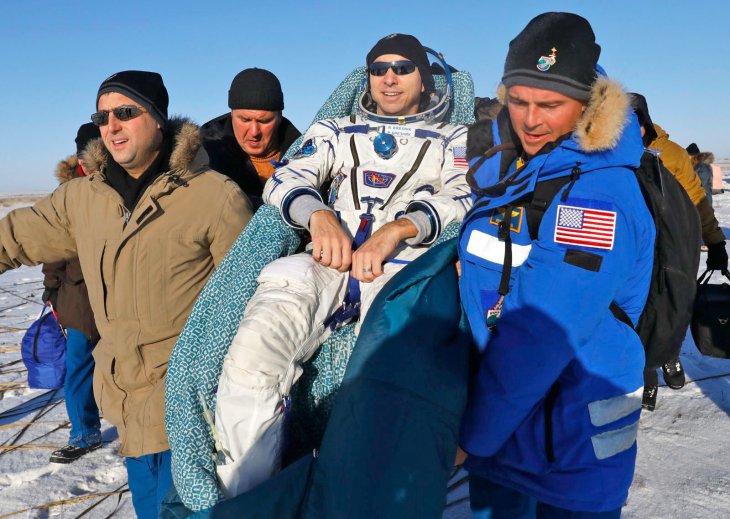Scientists To Send Extra-Muscular Mice To The ISS
Aadhya Khatri - Dec 05, 2019

The "mighty mice" play an important role in finding a novel method to cure bone and muscle loss in human in space and on Earth
- NASA Reveals 20 Most Stunning Earth Images Taken From The ISS
- Crew Isolating Themselves As NASA Hunts For Air Leak On The ISS
- World's Largest Underwater Research Station For Ocean Exploration Unveiled, Hope To Be ISS's Aquatic Counterpart
The ISS (International Space Station) is going to welcome some really strange residents onboard.
This Saturday, a SpaceX craft will start its journey to the ISS with 2,585 kg of cargo to the International Space Station including equipment, supplies in general, and some “mighty mice,” which will play an important part in the research to protect astronauts’ health while in space.

These mice are part of the Rodent Research-19 experiment. Back on Earth, they are specially designed to have no myostatin, a type of protein that determines the limit of muscle growth. This means these mighty mice’s mass of skeletal muscles is double that of normal ones.
Another group of mice also making their way to the ISS is those that have not yet been altered. The astronauts on the station will conduct experiments on them by injecting them a drug containing myostatin.
What researchers expect to gain from sending genetically altered mice to the ISS is a way to prevent muscle loss on Earth and in space. As these rodents are about to be subjected to the same environments as the astronauts, the scientists can gain insight into the effect of myostatin targeting.

Humans who have been to space suffer from the atrophy of muscles and bones. Even on Earth, the condition can also appear. This is why researchers expect to gain insight into it and find a cure.
According to Emily Germaine-Lee, co-investigator of this project and an MD at Connecticut Children's Medical Center, The drug that will be tested on the ISS is expected to help prevent both bone and muscle loss in space and on Earth.
Featured Stories

Features - Jan 29, 2026
Permanently Deleting Your Instagram Account: A Complete Step-by-Step Tutorial

Features - Jul 01, 2025
What Are The Fastest Passenger Vehicles Ever Created?

Features - Jun 25, 2025
Japan Hydrogen Breakthrough: Scientists Crack the Clean Energy Code with...

ICT News - Jun 25, 2025
AI Intimidation Tactics: CEOs Turn Flawed Technology Into Employee Fear Machine

Review - Jun 25, 2025
Windows 11 Problems: Is Microsoft's "Best" OS Actually Getting Worse?

Features - Jun 22, 2025
Telegram Founder Pavel Durov Plans to Split $14 Billion Fortune Among 106 Children

ICT News - Jun 22, 2025
Neuralink Telepathy Chip Enables Quadriplegic Rob Greiner to Control Games with...

Features - Jun 21, 2025
This Over $100 Bottle Has Nothing But Fresh Air Inside

Features - Jun 18, 2025
Best Mobile VPN Apps for Gaming 2025: Complete Guide

Features - Jun 18, 2025
A Math Formula Tells Us How Long Everything Will Live
Read more

ICT News- Feb 18, 2026
Google's Project Toscana: Elevating Pixel Face Unlock to Rival Apple's Face ID
As the smartphone landscape evolves, Google's push toward superior face unlock technology underscores its ambition to close the gap with Apple in user security and convenience.

Mobile- Feb 16, 2026
Xiaomi Launches Affordable Tracker to Compete with Apple's AirTag
For users tired of ecosystem lock-in or high prices, the Xiaomi Tag represents a compelling, no-frills option that delivers core functionality at a fraction of the cost.

Mobile- Feb 17, 2026
Anticipating the Samsung Galaxy S26 and S26+: Key Rumors and Specs
The Samsung Galaxy S26 series is on the horizon, sparking excitement among tech enthusiasts.
Comments
Sort by Newest | Popular